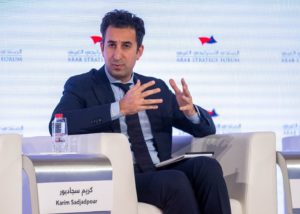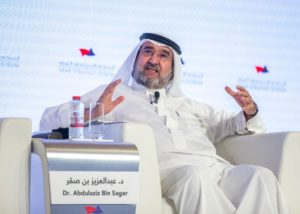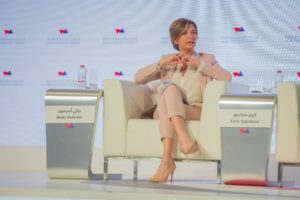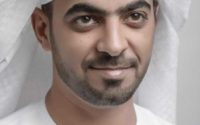ASF 2019: Solid Relations Needed To Reduce Tensions In The Arab World
Middle Eastern countries need to join forces with international powers, such as the United States and Russia, to bring peace to the region. This was the collective view of the panellists at a session titled ‘The Race for Relevance and Influence in the Region: GCC, Iran, Turkey & Russia’ at the 12th Arab Strategy Forum (ASF 2019) on Monday.
Moderated by Becky Anderson, Managing Editor and Anchor at CNN Abu Dhabi, the panel discussion opened a dialogue about the roles of these countries and the GCC region in ushering in an era of reconciliation.
Panellists included Karim Sadjadpour, Chief Iran Expert and Senior Fellow at the Carnegie Endowment for International Peace, Professor Hüseyin Bağcı, Chair of International Relations Department at Middle East Technical University and Deputy Director of Foreign Policy Institute in Ankara, Dr Abdulaziz Bin Sager, Founder and Chairman of the Gulf Research Center, and Dr Elena Suponina, Advisor at the Russian Institute for Strategic Studies. The discussion focused on the clear stances and efforts that will help ease the initiation into the new era of the Islamic republic while addressing the struggle for legitimacy of promised actions.
To put Russia’s stance into perspective, Dr Suponina said: “Russia has always maintained friendly relations with the Middle East region. The Russian people want to see the conflicts resolved here. Despite challenges, both economic and political, we can integrate our efforts to create a long-term solution to the issues plaguing the region. It is strange not to combine our efforts when we all want the same thing. Rebuilding Syria should be one of our biggest concerns – Russia welcomes the GCC region, the United States and China, among others, to come together to restore the country.”
Highlighting the relevance of Iran’s transformation in the last decade to the region, Karim Sadjadpour said, “After 40 years of a clerical regime and a military autocracy, there is now a rise of Persian nationalism. This is a shift from the sheer revolution ideology. There is also the evolution of the identity of the Arab Shia.”
Speaking about war-afflicted countries, he added, “Mental health and post-traumatic stress disorder are the major challenges that nations like Syria and Yemen will face in decades to come. Ancillary effects like radicalism will pose a threat.”
In closing, he stressed the need to build sustainable and stable nations over the next decade.
Bağcı said, “Turkey needs to rebuild its relations with other nations. The country has to gain trust and make powerful alliances that will create a positive effect in the region. We need to have civil rights rather than revolutions, and an impactful strategy that makes a difference.”
Bin Sager said, “The GCC states are witnesses to a lot of promises and initiatives that other countries offer to the region.” He noted, “Russia does want to strengthen relations and build more associations, but even in trade, it is not as strong an alliance as China.”
He added, “Solid efforts need to be made to rebuild conflicted areas in the region. A country like Syria needs to be overseen by a powerful group that will work towards its betterment.”
Panellists agreed that reconciliation among countries is the need of the hour during this race for relevance and influence.









